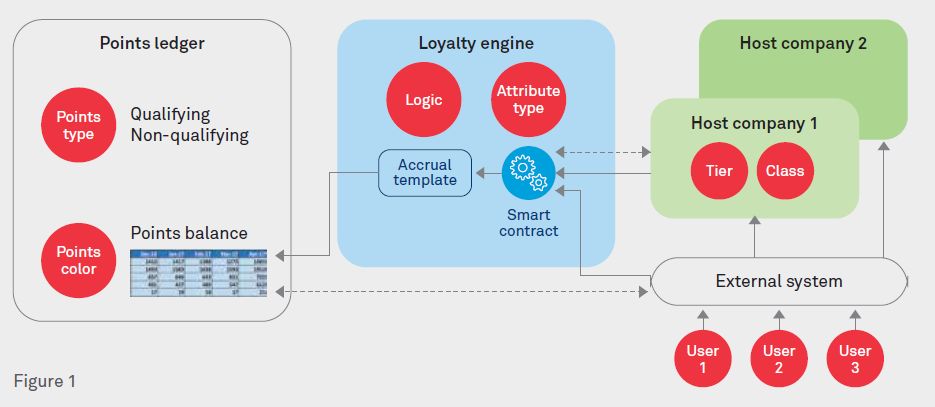BD124 Insights
Your go-to source for the latest news and informative articles.
Forget Frequent Flyer Miles: Blockchain is Taking Loyalty Global
Discover how blockchain is revolutionizing loyalty programs worldwide—forget frequent flyer miles and embrace the future of rewards!
How Blockchain is Revolutionizing Customer Loyalty Programs
The integration of blockchain technology into customer loyalty programs is transforming the way businesses engage with their customers. Traditional loyalty programs are often limited by centralized systems that create barriers to redeeming rewards and tracking customer interactions. With blockchain, companies can create decentralized and transparent platforms that allow customers to earn, store, and exchange loyalty points seamlessly. This not only enhances the overall customer experience but also instills trust as users can independently verify their rewards in real-time.
Furthermore, blockchain-based loyalty programs offer greater flexibility and interoperability across different businesses. By utilizing smart contracts, companies can design personalized rewards that can be exchanged or used in various ecosystems. For example, a consumer could earn loyalty points from purchasing coffee at one store and then use those points for discounts at a partner retailer. This cross-platform compatibility fosters a more engaging customer journey and significantly increases the value of loyalty programs, driving customer retention and brand allegiance.

Counter-Strike is a highly popular tactical first-person shooter game that pits teams of terrorists against counter-terrorists in various objective-based scenarios. Players can enhance their gaming experience with various bonuses, like using a shuffle promo code to acquire skins or upgrades. The game's strategic depth, combined with its competitive scene, has made it a favorite among gamers worldwide.
The Future of Loyalty: Why Blockchain is Better Than Frequent Flyer Miles
The landscape of customer loyalty programs is rapidly evolving, and blockchain technology is at the forefront of this transformation. Traditional frequent flyer miles can often feel convoluted and restrictive, trapping customers in complex rules and expiration dates. In contrast, blockchain offers a decentralized solution that allows for transparent tracking and exchange of loyalty points across multiple platforms. This not only enhances customer experience by enabling them to utilize their rewards more flexibly but also fosters trust in loyalty systems. With blockchain, points can be easily transferred and spent in real-time, redefining how consumers engage with brands.
Moreover, as consumer preferences shift towards more personalized and seamless experiences, the advantages of blockchain-based loyalty programs become even more pronounced. By leveraging smart contracts, companies can create tailor-made rewards that adapt to individual customer profiles. This means that instead of accumulating points towards distant flights, customers could earn tokens that can be used for a variety of services, from hotel stays to dining experiences. As brands increasingly adopt this innovative approach, it's clear that blockchain isn't just an alternative to frequent flyer miles—it represents the future of loyalty itself.
What Are the Benefits of Blockchain-Based Loyalty Systems?
Blockchain-based loyalty systems offer numerous advantages over traditional loyalty programs, primarily by enhancing transparency and security. With the decentralized nature of blockchain technology, every transaction is recorded on a public ledger, ensuring that all activities related to the loyalty program are easily verifiable. This transparency fosters trust among customers, as they can track their points and rewards in real-time without the fear of tampering or fraud. Additionally, the use of smart contracts automates reward distribution, reducing operational costs and minimizing errors associated with manual management.
Another significant benefit of blockchain-based loyalty systems is their potential to improve customer engagement. By allowing for the interoperability of loyalty points across various brands and platforms, customers can enjoy a more seamless earning and redemption experience. This flexibility encourages greater participation in loyalty programs, as users are more likely to engage when they can utilize their rewards across different merchants. Furthermore, the integration of tokenization can facilitate personalized marketing, enabling businesses to tailor offers and rewards based on customer behavior and preferences, ultimately leading to higher satisfaction and retention rates.